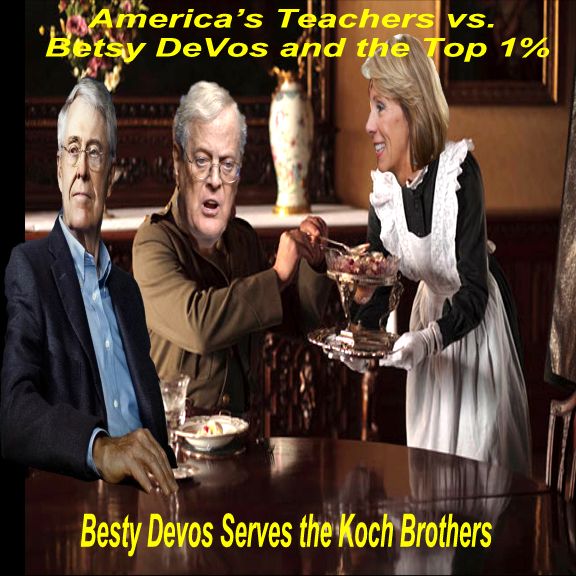Betsy DeVos: the billionaire Republican destroying public education
Cuts, attacks, rollbacks – the education secretary’s campaign to dismantle America’s public system has continued unabated
Betsy DeVos has become accustomed to hostile audiences. The House of Representatives’ education committee earlier this month was no exception.
“When you approach a public school, you are protested,” the Democratic congresswoman Frederica Wilson told the education secretary. “When you enter, you are booed. You are the most unpopular person in our government. Millions will register to vote in 2020. Many will vote to remove you more than to remove the president.”
It was a rare moment of clarity in the constant swirl of drama in Washington – border wall, Russia, partisan warfare, media bashing, tweets, impeachment – that seems to provide cover for Donald Trump’s cabinet secretaries to escape scrutiny. Chief among them is DeVos who, critics say, is quietly and insidiously destroying public education in America.
DeVos’s record is proof, they argue, that when the smoke of the Trump presidency finally clears, the substance of his legacy on policy, deregulation and stacking the courts will remain – and take far longer to repair.
“We’ve had plenty of Republican as well as Democratic secretaries of education but none of them, even those who believed in alternatives to public education, actually tried to eviscerate public education,” said Randi Weingarten, the president of the American Federation of Teachers. “Here is someone who in her first budget tried to eliminate every single summer school programme, every single after-school programme, and who has done everything in her power to try to make it harder for us to strengthen public [sector] schools.”
A billionaire philanthropist, DeVos, 61, attended a private Christian school in Michigan and sent most of her children to private Christian schools; she has CONTINUE READING: Betsy DeVos: the billionaire Republican destroying public education | US news | The Guardian






























